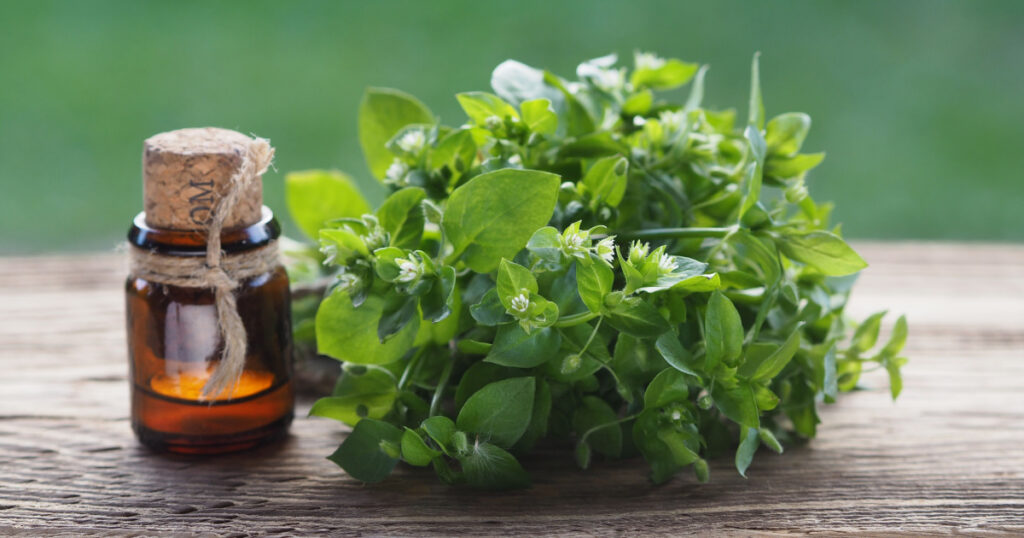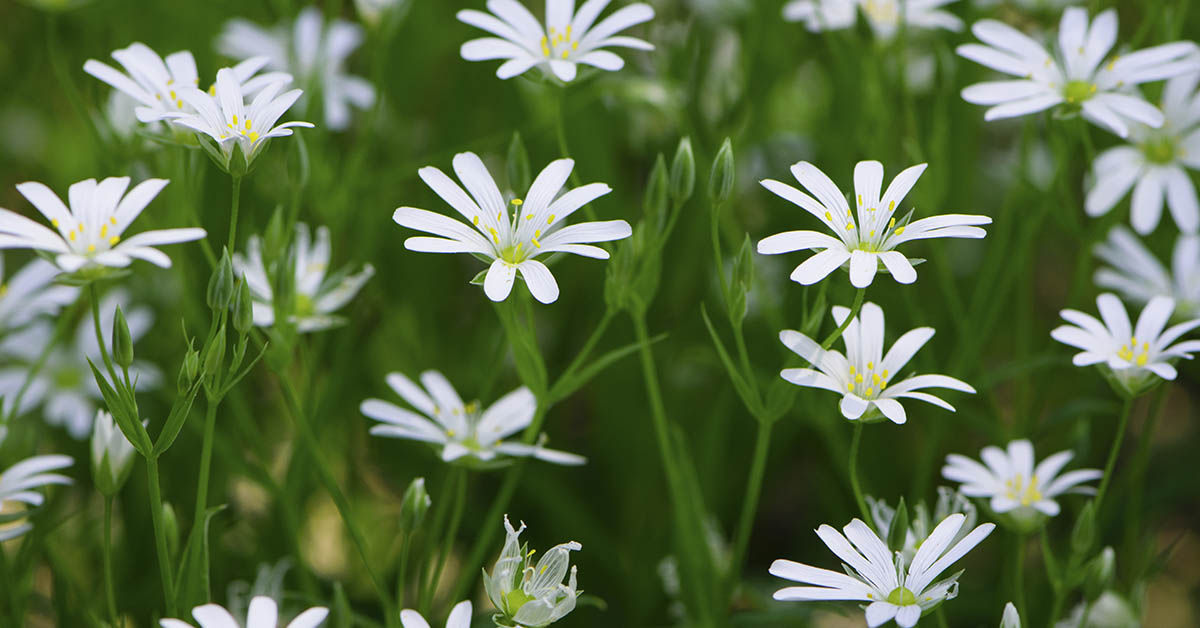Chickweed, scientifically known as Stellaria media, is a small, delicate herb that is native to Europe but is now found throughout North America and many other parts of the world. Despite its prevalence, very few people are aware of the valuable benefits this herb provides. Let’s discover what chickweed is, where it grows, and uncover its numerous health benefits.
What is Chickweed and where does it grow?
Chickweed is a low-growing annual herb that belongs to the Caryophyllaceae family. It has vibrant green leaves, small star-shaped white flowers, and slender stems reaching up to 40 centimeters in length. The plant is often found in moist, shady areas, such as gardens, lawns, fields, and even along roadsides. Due to its affinity for moist environments, chickweed is commonly found during the spring and early summer months.
The Benefits of Chickweed
For centuries, people have used chickweed for culinary purposes as well as medicinal. As with many folk remedies, there’s not always much evidence as to the efficacy of the claims made about what chickweed can help with. Let’s have a look at some of the benefits that have some evidence to support them.
1. Supports Digestion and Weight Loss

In a study in mice, Chickweed extract decreased the amount of food the mice consumed and their absorption of fats. These mice were specifically suffering from progesterone-induced obesity, all of whom experienced significant increases in body weight, body fat, and liver fat. Another study also found that mice fed freeze-dried chickweed juice while on a high-fat diet didn’t experience weight gain, despite the diet. Human studies have not yet been done. (1, 2)
Read: 7 Herbs That Can Help Fight Joint Pain
2. Helps Relieve Mucus in Respiratory Illnesses

When struck by a cold or flu, you may experience excessive mucus production, making it difficult to breathe comfortably. Chickweed has been used as an expectorant, helping to break up and expel mucus from the respiratory tract. Its naturally soothing properties can provide relief from coughs, bronchitis, and other respiratory ailments.
3. Reduces Inflammation

Chickweed packs a powerful punch when it comes to its anti-inflammatory properties. It contains various compounds, including saponins and flavonoids, which help to inhibit the production of inflammation-causing chemicals in the body. Whether used topically or consumed internally, chickweed can effectively reduce inflammation associated with skin conditions such as eczema, psoriasis, and even arthritis. One study found that whole chickweed as a plaster to swollen areas or even broken bones could provide anti-inflammatory, anti-irritation, and soothing effects. Another study found that whole plant can fight inflammation when used for inflamed skin, joints, and respiratory tract illnesses like bronchitis. (3, 4)
4. Fights Germs and Promotes Wound Healing

Chickweed’s remarkable antimicrobial properties make it an ideal herb for wound healing. It contains saponins that have been found to have antifungal, antibacterial, and antiviral effects. When applied topically, chickweed can help prevent infection and promote the healing of minor wounds, cuts, and scrapes. (5)
How to Incorporate Chickweed into Your Wellness Routine
There are various ways to incorporate chickweed into your wellness routine:
- As a tea: Steep dried chickweed in hot water for 10-15 minutes to create a soothing and nourishing herbal tea.
- In a salad: Add fresh chickweed leaves to your salads for an extra nutrient boost, as they are rich in vitamins A, C, and B.
- As a tincture: Seek out a reputable source for chickweed tinctures, which can be consumed orally or applied topically for specific conditions.
- In natural skincare: Utilize chickweed-infused oils or creams to soothe skin irritations and promote healing.
Precautions and Considerations
While chickweed is generally considered safe for most individuals, it is always wise to exercise caution when introducing any new herb or supplement into your routine. If you are pregnant, nursing, or have any pre-existing medical conditions, it is strongly recommended to consult with a healthcare professional before using chickweed medicinally.
In short, this humble and common herb has many benefits for our overall well-being. From aiding digestion and weight loss to reducing inflammation and promoting wound healing, its versatility makes it a valuable addition to any holistic wellness regimen. So, the next time you come across this unassuming plant, take a moment to appreciate its remarkable medicinal properties and consider harnessing its benefits for your health.
Keep Reading: 7 Benefits of Fennel and Fennel Seeds
Sources
- “Antiobesity effect of Stellaria media against drug induced obesity in Swiss albino mice.” NCBI. Vijay R. Chidrawar,, et al. December 2011
- “Quality assessment and anti-obesity activity of Stellaria media (Linn.) Vill.” NCBI. Neerja Rani, et al. September 2012.
- “Medicinal plants of the family Caryophyllaceae: a review of ethno-medicinal uses and pharmacological properties.” NCBI. Satish Chandra and D.S. Rawat. July 4, 2015
- “Plants Producing Ribosome-Inactivating Proteins in Traditional Medicine.” NCBI. Letizia Polito, et al. November 2016.
- “A novel antifungal peptide from leaves of the weed Stellaria media L.” Science Direct. Eugene A. Rogozhin, et al. September 2015.

